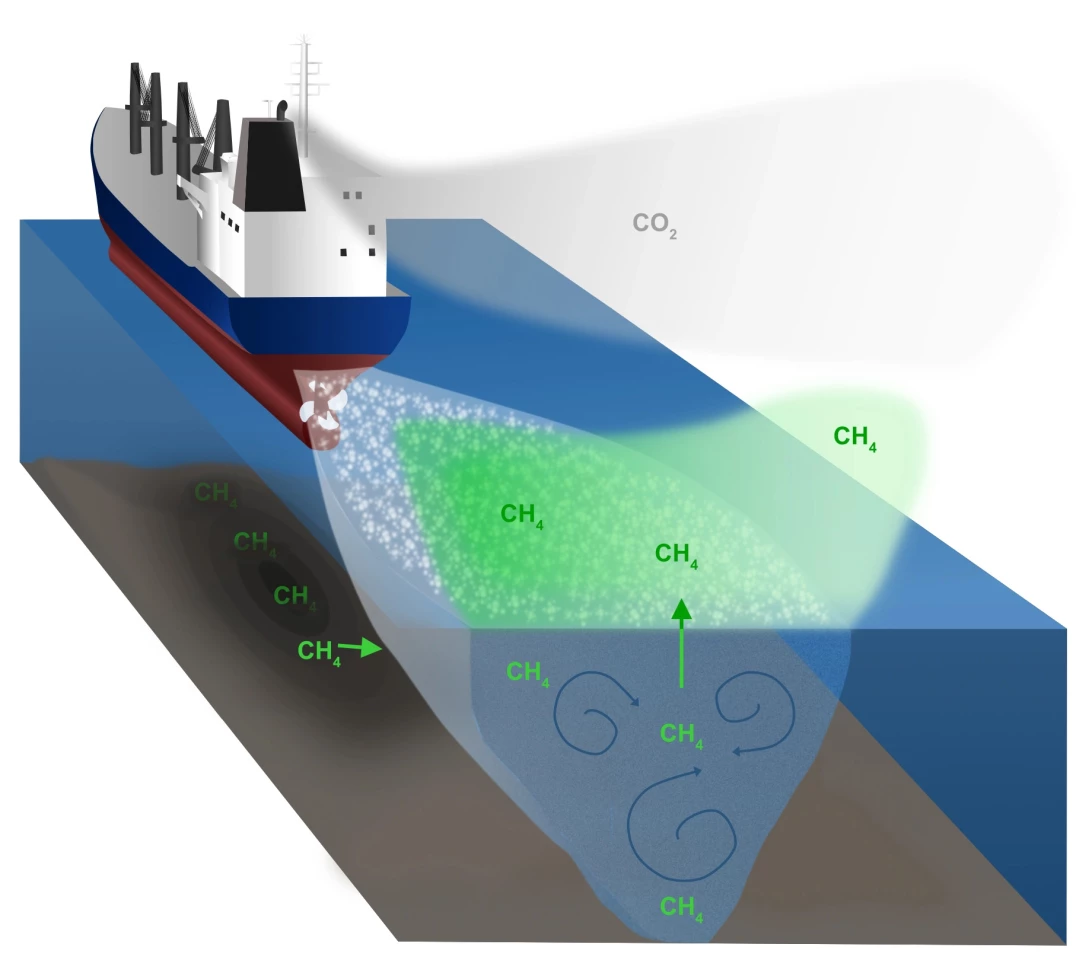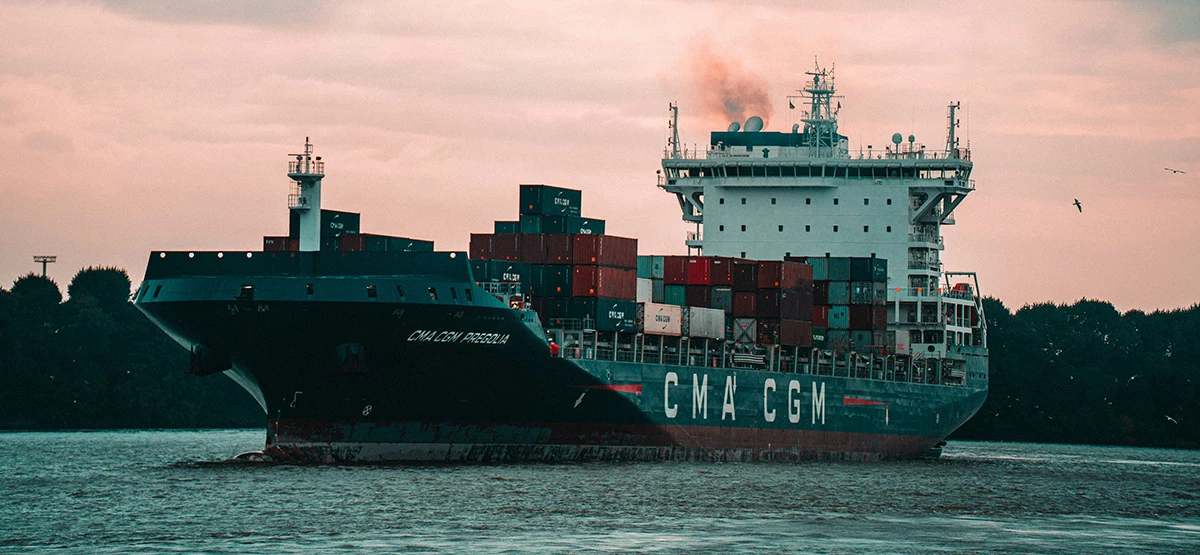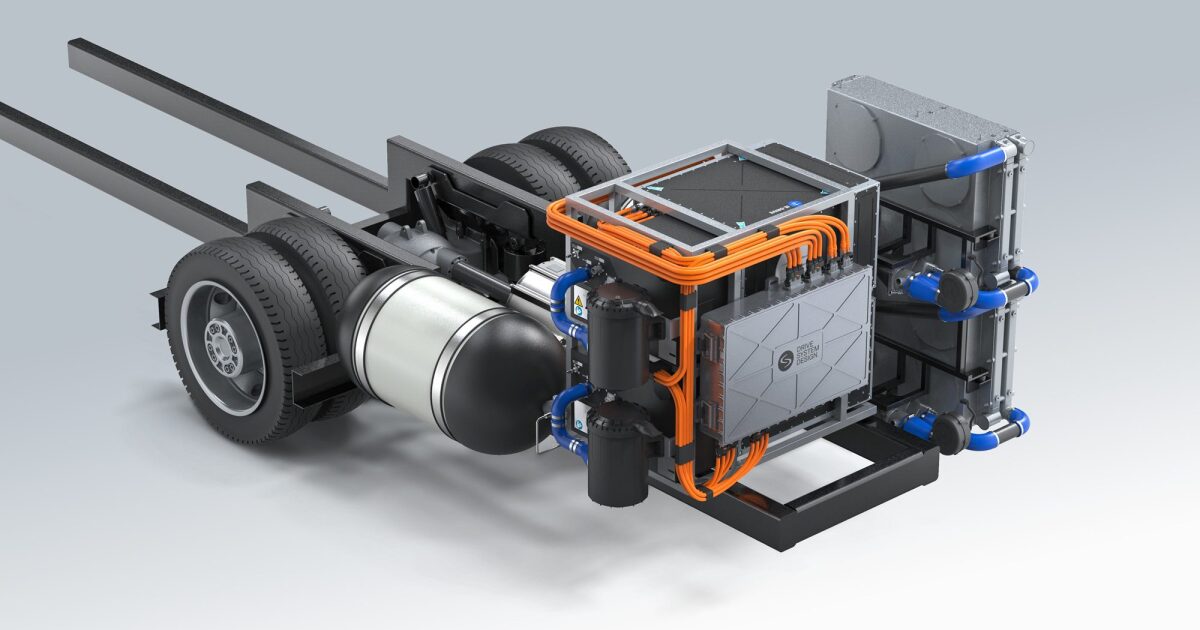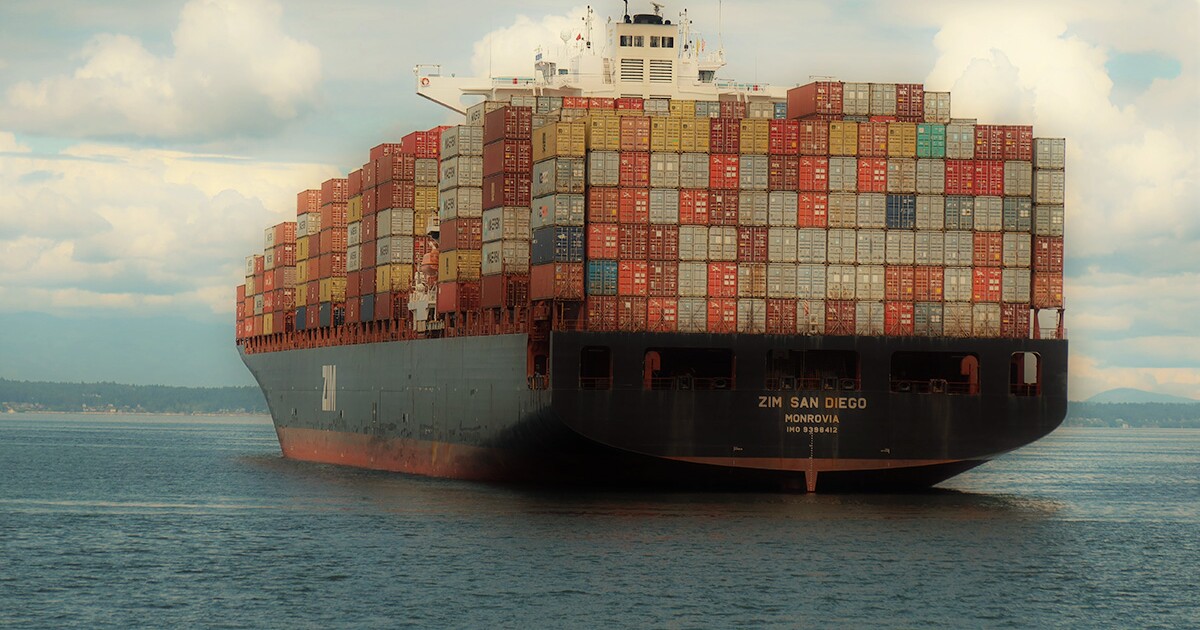Methane is awful for the environment: it’s the second most abundant greenhouse gas in the air after carbon dioxide, and is about 28 times as powerful as CO2 in terms of trapping heat in the atmosphere. It’s a major byproduct of coal production and livestock fermentation, and it also comes from surprising sources like cow burps, and – as researchers in Sweden have now found – ships passing through shallow waters.
A study born from an unexpected observation over the a decade ago, led by Chalmers University of Technology, shows that the passage of ships can trigger clear pulses of high methane fluxes. “This is caused by pressure changes and mixing of the water mass,” explained researcher Amanda Nylund. “Even if the pulses are short, the total amount during a day is significant.” In fact, these methane emissions were observed to be 20 times higher methane emissions than compared to nearby undisturbed areas.
The finding reveals that we’re underestimating methane emissions from the enormous global shipping industry, and the impact they’re having on our atmosphere – and that means we’re not in a good position to address this environmental challenge.

Amanda Nylund
It also highlights a previously unknown facet of greenhouse gas emissions from the shipping industry. That’s important particularly at this point in time, when reports note improvements in cargo fleets’ carbon intensity, but also increased emissions from shipping and astronomically high projections of emissions in the future.
“The discovery of the hitherto unknown impact of ships is important for improving global estimates of methane emissions, not least considering that nine of the world’s 10 largest ports are located in waters with similar conditions as Neva Bay,” said Johan Mellqvist, a professor at Chalmers whose team discovered these emissions by accident and kicked off the investigation.
So where are these emissions originating from, and how are ships causing them to release into the atmosphere? Methane is biogenically produced in shallow marine areas that have sediments with a lot of organic matter and are oxygen-free. It then bubbles up into the water above these sediments. When ships pass through these waters, their propellers cause vertical mixing of methane-rich water from the bottom of the ocean, and pressure at the seafloor changes. These together draw the dissolved gas out – first into the water and then out into the atmosphere.
A team of Chalmers researchers first came across this phenomenon back in 2011, when the group was looking into air emissions from ship fuel combustion. They noticed surprisingly large methane emissions that appeared with a slight delay compared to the plumes of exhaust from the ships they were observing; this delay indicated that the emissions weren’t being emitted by the ships’ combustion systems.
It took a couple more investigations into turbulent ship wakes before Nylund delved deeper into the origins of these methane fluxes, and worked with colleagues to model data that would reveal the whole story. The team’s study appeared in the journal Nature Communications Earth & Environment in May.
It’s worth noting that container and cruise ships triggered more significant methane emissions than similarly sized bulk ships (which transport unpackaged bulk cargo like grain, coal, and ore). This is likely down to the hull design and propeller systems of the vessels.

The team notes that its findings underscore the importance of measuring and monitoring these emissions more closely in shipping lanes around the world, while acknowledging that it’s difficult to do so for a number of logistical reasons. If we don’t know how much damage we’re causing, we’ll have an awfully hard time fixing it before it’s too late.








